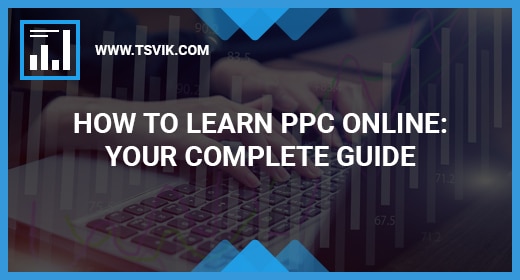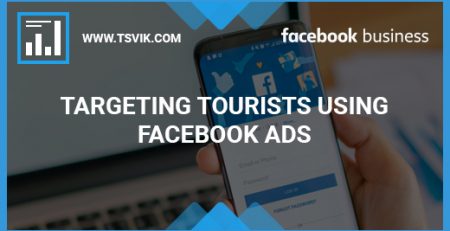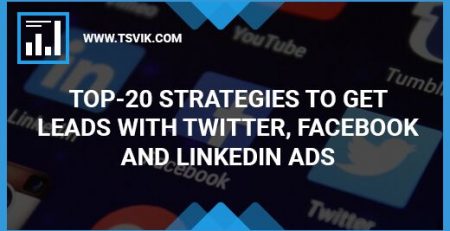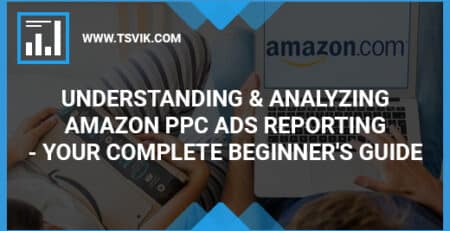How to Learn PPC Online: Your Complete Guide
How to learn PPC online?
If you’re an emerging startup with not enough budget to hire a specialist, a beginner marketing agent, or just a curious person willing to get new skills – you will definitely ask yourself this question!
Advertising is everywhere these days. You find it along the streets, on whiteboards, even in the middle of nowhere… You surely hit it a few times when you are watching a video on YouTube or when you are searching Google.
Ads may be good for your business if you know how to set them properly. Some companies get more leads through organic search or social media. It all depends on your marketing strategy and business goals.
However, PPC marketing is good to channel to start with and at least to experiment if you don’t want to run it on a regular basis.
It is expensive to constantly manage your PPC account: cost-wise and time-wise. You will need several hours a week engagement and a decent initial budget.
Here are a few rules to follow in order to become a true PPC expert in your field:
1. Define your PPC goals
First of all, decide what you want to get from advertising. Do you have an online store and you’d like to increase sales? Do you own a travel blog and you’re willing to monetize it? Are you up to raise your brand awareness and get some leads?
Any of these can be a perfect PPC goal as a start.
2. Read Google AdWords and social media ads documentation
The actual technical documentation is the most extensive knowledge you can get about PPC. Most likely, it will not be easy to understand. Some points require a preliminary technical background or some basic marketing and advertising terms.
In order to learn the very basics of marketing, refer to online dictionaries and Wikipedia. Just try to Google search for an unknown term, and you will get the best answer. With a really smart artificial intelligence algorithm, Google is a miraculous helper.
When you get more involved in marketing and advertising, you may dig into the technical guidelines provided by Ad platforms:
3. Follow industry leaders and influencers
It is always rewarding to learn from the best! If you want to get a more consistent and advanced knowledge of advertising and marketing, you should absolutely subscribe to the most powerful blogs in the industry:
Official Google Blog: this is the inside AdWords blog about Google PPC. The most exact information you may find online, from the source.
Unbounce: it is considered the best PPC blog by many influential personas. You will find everything you need and get the finest expert advice.
Search Engine Marketing: it has brilliant PPC guides for beginners and advanced marketers.
Search Engine Land: this marketing website includes a lot of absolutely valuable information collected by experts worldwide. You will get the most up-to-date info and news.
Search Engine Watch: a good blog about the most innovative PPC techniques and cases.
PPC Hero: it is a nice platform to look for useful information about PPC advertising.
There are more resources to follow. Also, a blog doesn’t have to be popular to provide valuable information. Some small websites and blogs have a good piece of advice.
4. Find a local/online PPC expert and get help
It is always easier to absorb new knowledge if you have a professional tutor by your side. That is why for some getting help from a PPC expert might be a good option to start learning PPC online.
What are the benefits of getting help from a PPC expert?
- For many people, it is simpler to perceive the knowledge explained by a person. Hearing the material might be better than reading.
- You get knowledge easier and faster as you don’t need to research difficult and controversial points by yourself. The tutor will gladly help you find the best information or will provide a personal professional opinion.
- You learn PPC online on a strict working schedule. It helps you get used to the rhythm of studies and to set your mind flexible for new knowledge.
- The more you learn, the easier the task is in the next lesson. You get familiar with new terms and abbreviations. Now you become a PPC expert yourself!
- A PPC tutor will check your skills at the beginning of each lesson to see how you progress. In a nice interactive way, you will learn the most technical stuff at a glance.
Ask Tsvi for more information.
5. Choose the best online course for you!
If Ad help documentation is not enough for you and you can’t find budget and time for a PPC tutor – browse through multiple online courses.
There, you will have one or more online PPC professors who will explain to you the step-by-step basics of advertising.
Make sure, you select a good well-known expert on the market. There are a few websites offering online education on a free/paid basis:
Coursera
It is probably the best place if you are new to online learning. It provides a wide range of courses in different domains: from humanitarian to arts, from science to marketing. You will definitely find what you need. Most of the courses are free if you don’t need a certificate.
You can also obtain a specialization which is a set of courses in the same domain. It provides a richer certified knowledge of a subject.
Udemy
Udemy is similar to Coursera though it provides non-academic courses. You can browse through a variety of fields and topics and find what is best for you. It has a nice and friendly interface and a lot of emerging courses online.
If you get really smart at advertising, you can event become a teacher on Udemy.
Lynda (LinkedIn Learning)
It is another similar option to study PPC online. You get access to an unlimited number of courses with a cost-effective subscription. You don’t have to subscribe to a single course. You can change subjects as many times as you want.
Lynda is good for career and practical skills. The platform provides a very extensive library of online courses. Moreover, you can get a free trial for 1 month.
Stanford courses
If you would like to get a really professional knowledge with a skillful approach – make your way to Stanford. They provide a bunch of online courses in the following areas:
- Business analytics
- Marketing
- Advertising
- Social media
- and others
6. Become Google AdWords certified
Nowadays, it is easy to become Google AdWords certified. All you need to do is to go to Skillshop and to set your account. Ask for help HERE.
The certification is accepted worldwide and builds trust in the services you provide. If you are not planning to be a marketing manager, Google AdWords certification is still useful as it drives you through the practical world of Google Ads.
Become Google Analytics certified – and you will be even more proficient in managing Google Ads. The Analytics knowledge helps you adjust reporting and statistics and analyze the data.
7. Follow PPC forums online
Sometimes you deal with a spontaneous problem. And you can’t find a response on Google or any of the PPC blogs you follow. In this case, a good choice is to ask for advice in a PPC community or forum.
Here’s the list of popular forums for advertisers:
PPC Chat
This is a great Twitter community where you can ask anything and get help.
Reddit PPC Community
Reddit is an awesome way to find relevant answers on various topics. There are millions of people connected to Reddit, so you will get support soon.
Quora
Quora is not exactly a forum but it is a highly populated place. You can post your question as a new thread but be ready to get a lot of advertising back except the actual helpful advice.
8. Never stop inquiring!
It is good to focus on learning even after you finished your course online/with a tutor/on your own. Try to learn something new about PPC every day. Subscribe to blogs and daily news, get the most recent updates and participate in PPC forum discussions.
Learn about other people’s experiences, share your advice and keep improving your PPC skills.
Good Luck!










Leave a Reply